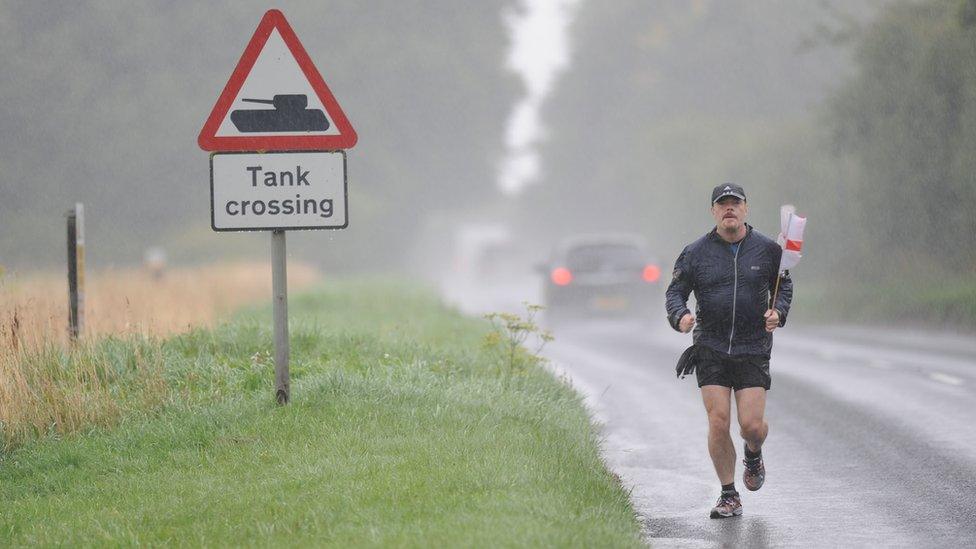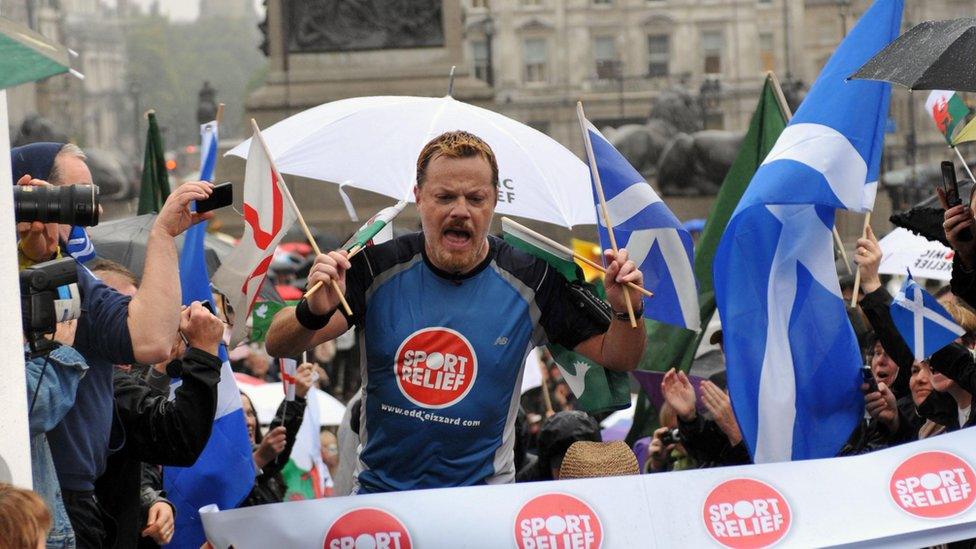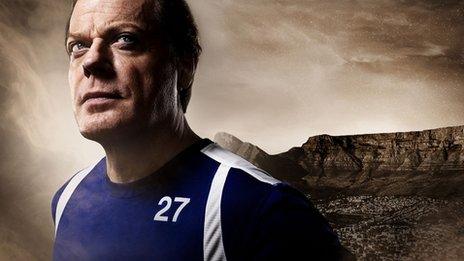How will 27 marathons affect Eddie Izzard?
- Published

Comedian Eddie Izzard is running 27 marathons on 27 consecutive days to raise money for Sport Relief. But how does such an arduous journey affect the human body, asks Robert Spencer.
Izzard is running in South Africa, and each day of the marathon symbolises the 27 years former president Nelson Mandela spent in prison during the apartheid era.
Taking on consecutive marathons like this is classed as "ultra-running". In a stark contrast to the British weather, the comedian will face temperatures of up to 30C. Even dedicated ultra-runners have difficulties in this heat.
Izzard has faced a similar challenge before, albeit not in these conditions. In 2009 he completed 43 marathons in just 51 days, raising over £1m.
With this level of exertion, there can be dangerous biological effects, according to Dr Francois-Xavier Li from Birmingham University.
"Swelling is possible. You can grind your teeth and so on, but at some point you have to make a decision: 'Am I ready to risk permanent damage to achieve the goal I have set for myself?' It's not just a joke, there are realistic risks involved."

After a few days of running athletes can suffer "delayed onset muscle soreness" (DOMS). Slower running can help reduce this. Izzard will also burn a lot of calories that will be difficult to replenish. With such large amounts of exercise, parts of the body shut down and appetite is lost at the time the runner most needs to be eating.
Fatigue from running long distances with little rest can make the immune system weak, which in turn makes people more susceptible to catching colds or other illnesses.
Eddie is 54 years old. Will this have an effect on his performance? Li thinks so. Though studies, external have suggested that ultra-runners can fare well into their 50s, the difference is recovery. As you grow older you take longer to recover from injuries or long runs than a younger person.
But there is a sense in which older runners have a distinct advantage, says Li. "We see in ultra-endurance, people of older age perform just as well as much younger people, probably because a lot of it is mental. As I mentioned we can do a lot more than we think and if we put our mind to something we can achieve more than one would expect, and maybe older people have a little bit more resilience, a little bit more patience, a little bit more long-term view, and they are able to cope better with this kind of thing."

September 2009: Eddie Izzard reaches the finishing line after completing a 1,100 mile run around the UK
It is a lot harder to go from 0-5k than 50-100k says Josh Ord-Hume, a keen marathon runner. He ran his first 100-miler a couple of years ago raising money for children in Sierra Leone.
Ord-Hume says "racecraft" is central to performing well over very long distances. "You have to know exactly what your goal is."

Elsewhere on the BBC

Eddie Izzard will be posting daily videos during his epic run, which is in honour of the memory of Nelson Mandela.
Follow Eddie Izzard: Marathon Man for Sport Relief every day on BBC Three.

Subscribe to the BBC News Magazine's email newsletter to get articles sent to your inbox.